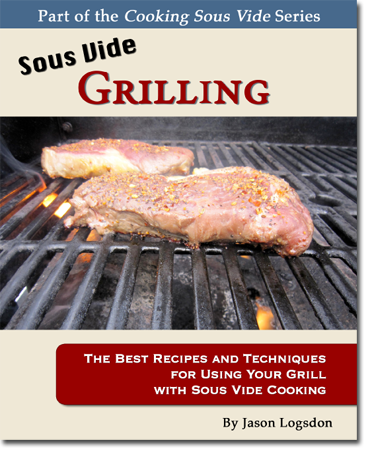 Written by Jason Logsdon
Written by Jason Logsdon
How to Pick Your Niche as a Food Blogger
Click to discover how to serve your Fans and grow your incomeThe most important key to being a successful food blogger? Hard work!
Number two? Correctly picking the niche for your blog.
If you are competing with Serious Eats, Cooks Illustrated or Martha Stewart and Snoop Dogg you are going to have a lot harder time than if you are a big player in a smaller niche.

And honestly, it's more important to pick ANY niche than what that niche actually is. I have talked to so many people that were struggling with their blogs until they finally decided to find a niche. Then their readers started growing, along with their income and success.
I mean, this has outsold many of my books, and I don't know if you can get more niche than goats in trees, but it's successful because they know their market. As weird as it may be.
Having a niche is so important to your future success.
What is a Niche?
Your niche is simply the subject you focus on with your blog. There are several types of niches, and people express different ways on how to find your own. But I like to break niches down into two different types: functional niches and belief niches.
Functional Niches
Functional niches are based on a specific topic, such as:

- A Specific Type of Cooking
- Sous vide
- Pressure cooking
- Air frying
- Grilling
- A Specific Ingredient
- Tofu
- Farm fresh produce
- Wild Game
- A Specific Cuisine or Food Category
- Mediterranean
- Italian
- Korean
- Pizzas
- Pastas
- Tapas
- Vegan
- A Specific Type of Person
- Busy Moms
- People with peanut allergies
- College students
- Budget conscious parents
- Vegans
Belief-Based Niches
Belief-based niches are based on a specific belief that you have. I was first introduced to belief-based niches by Tim Schmoyer from Video Creators and the concept was so powerful it stuck with me. Belief-based niches usually take the form "I believe X" and they fill out the statement "I am teaching you THIS so THAT".
It's a great way to really drill down into what your audience is trying to accomplish, who they are, and what type of content you will want to create for them. It's also an easy way to draw a hard line in the sand: "This is what I believe...if you disagree, then my content isn't for you". It makes it effortless to deal with some of the criticism you face as a food blogger.
Combining Functional and Belief Based Niches
Belief-based niches are often combined with a functional niche to make them even more powerful. Saying you "write about Italian Food" is very different than:
- I believe cooking Italian food helps you connect with your past
- I believe classic Italian dishes can be updated to be both flavorful and healthy
- I believe hearty Italian dishes are the best comfort food possible during sad times
- I believe Italian food can result in quick and easy weeknight meals
- I believe Italian food can be updated into modernist creations worthy of 3 star Michelin restaurants
- I believe budget conscious families can use Italian food to stretch their budgets further
You can see how much those beliefs vary from each other.
I think it's a valuable exercise to look at those belief statements above and ask yourself a few questions about each one:
- "What are some specific recipes that might be on this blog?"
- "What would the recipe headnotes often focus on?"
- "Who would a typical reader be?"
Going through that exercise shows you how blogs with those belief statements would be very different from each other, despite them all being about "Italian food". And the readers of one blog might have zero interest in the other blogs, even if the occasional recipe was the same on both.
While this can feel restrictive, it actually opens up a ton of possibilities with the types of content you can develop.
If your niche is just "Italian Food", many of your readers will be confused if you write a post about "The top 10 tips to save money in your kitchen" because it has nothing to do with Italian food. But if your niche is "I believe budget conscious families can use Italian food to stretch their budgets further" then that money saving post fits directly into your niche. Your readers will all appreciate it...they read your blog because they are budget conscious, not because they want to cook upscale Italian dishes.
Knowing your belief statement also makes it much, much easier to connect with and effectively serve your Fans, because you are coming from a place of shared belief and experience.
Keys to a Successful Niche
There are many keys to finding a successful niche and I want to share some of my tips.
Find Something You Enjoy and Believe In
If you ask people what the most important key to finding a successful blog is, many people will talk about competition, keyword analysis, market saturation and other analytical approaches.
I believe the most important key to having a successful blog is to focus on something you enjoy doing.
The analytics stuff is definitely important and can help you make your decision, and just because you love something doesn't mean it will be successful. But if you are blogging about something you don't enjoy or worse yet, actively dislike, you're never going to stay motivated enough to succeed.
If you don't like eggplant that much, but for some reason one or two of your eggplant posts have blown up, don't feel like you need to focus all your energy on eggplants moving forward. You'll burn out pretty quickly.
I've been blogging for 12 years now, and I can't imagine writing that long about a subject I don't care about. I love using sous vide, so creating recipes and content around it is a really fun part of my day.
Competition is Good! To a Point...
The odds of you finding something that no one else is writing about is really slim. And if you do, it's often because there is zero interest in the subject matter. Sure, no one has a blog dedicated to "smoked vegan tofu desserts", but that's because no one wants to read about them!
An ideal niche is one with lots of people interested in it, but no main players yet. For instance, when I got started with sous vide 12 years ago, there were only 3 to 5 blogs that even talked about it, and only 1 that was focused exclusively on it.
But sous vide was talked about a lot in message boards, on Reddit, and in many of the social media channels. Plus Thomas Keller's cookbook had just increased the awareness of it.
So the sous vide niche was ready for a dedicated blog that could pull all of that disparate information together in one place.
The demand for the information already existed, the readers just needed a place to go. Providing them that place was the key to my success.
Conversely, at some point having competition is a bad thing. If you think you've found your niche but there are 50 blogs dedicated to it already, then even though there is demand, there's actually not a hole in the market that needs to be filled. You'll probably need to find a smaller niche in that market, or find a different niche entirely.
Niche Your Niche
If you are struggling to find a small enough niche to avoid competition, you can always try to find a smaller niche in the larger one.
For example, 12 years ago "sous vide" was a small niche that it was easy to dominate. Today, there are millions of people using sous vide, and more than 200 cookbooks have been published on the subject in the last 2 years alone. So "sous vide" no longer cuts it as a viable niche for most people.

However, applying a functional or belief-based niche to sous vide itself can help find additional niches. There is very little dedicated content to:
- Functional Niches
- Sous vide and smoking
- Sous vide wild game
- Catering with sous vide
- Belief-Based Niches
- I believe sous vide can be used to impress your friends
- I believe college students can easily use sous vide to create cheap meals
- I believe sous vide can create healthier foods than other styles of cooking
Conclusion: Finding Your Niche is Key to Your Success
Almost every product I have put out for a small niche has been "successful" and most every time I've gotten greedy and attacked a larger market it hasn't worked as well.
It's alluring to look at a big market like "vegan", "grilling", or "pressure cooking" and realize that you can create something slightly better than what is out there. But "slightly better" is a lot different than there being a need in the market, and you'll struggle to break into those already saturated areas.
It's better to find what your specific take on the subject is, and really drill down to what makes you "you". It's a smaller market, but if you dominate it you will gain a lot of credibility, allowing you to slowly expand.
It is critial to find a niche that you can own and be an authority in. Find your niche and attack it, create the content readers in that niche want, while resisting the temptation to expand into larger markets too quickly. And your chances for success will skyrocket.
How did you decide what your niche should be? Let me know in the Makin Bacon Facebook Group or the comments below.
 Hi, I'm Jason Logsdon! I'm an adventurous home cook and the head writer and photographer for Amazing Food Made Easy. I grew my income to 6-figures by focusing on serving my Fans by providing massive value, and I want to help you do the same.
Hi, I'm Jason Logsdon! I'm an adventurous home cook and the head writer and photographer for Amazing Food Made Easy. I grew my income to 6-figures by focusing on serving my Fans by providing massive value, and I want to help you do the same.






















